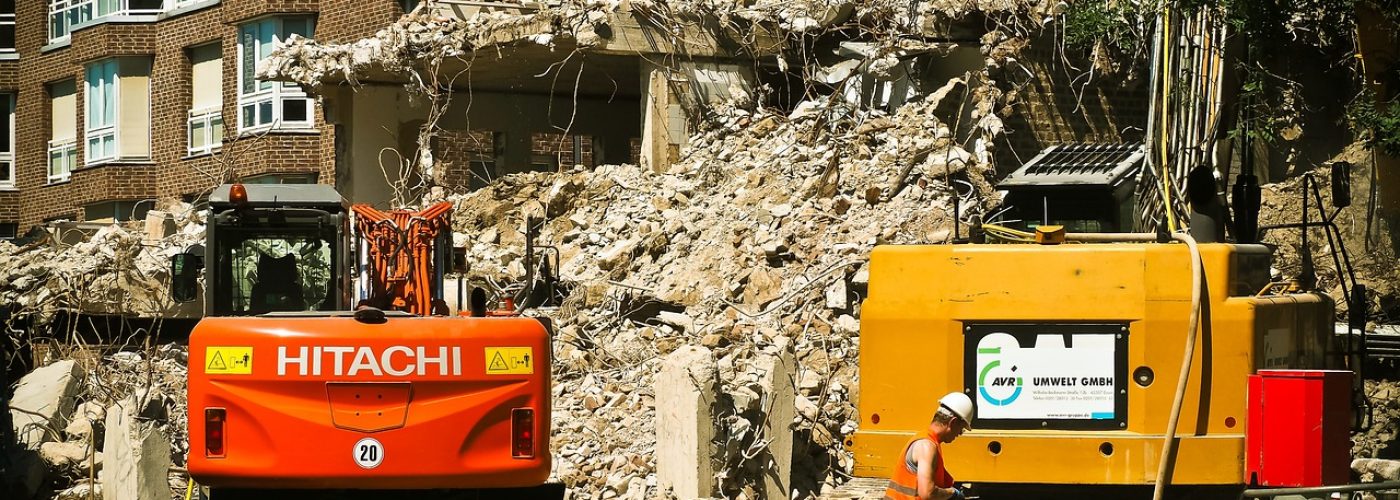The demolition phase of construction often receives less attention when it comes to sustainability. However, responsible demolition practices are key to achieving truly sustainable construction outcomes. By adopting a comprehensive approach to demolition that minimizes waste and maximizes recycling efforts, we can minimize the environmental impact while preserving valuable resources.
In this article, we will delve into the importance of responsible demolition practices and explore effective strategies for implementing sustainability in demolition projects.
The Environmental Impact of Demolition
Traditional demolition methods have significant environmental consequences, including resource depletion and pollution. Some key environmental impacts of conventional demolition include:
Waste generation: Conventional demolitions result in vast amounts of waste material being sent to landfills, contributing to resource depletion and creating a burden on the environment.
Energy consumption: Demolition processes often involve heavy machinery and equipment, leading to high energy consumption and increased carbon emissions.
Air and water pollution: Improper handling of demolition debris can lead to the release of harmful substances into the air and water, posing risks to human health and ecosystems.
These environmental concerns highlight the urgency for adopting sustainable practices in demolition.
can lead to the release of harmful substances
Sustainable Demolition Practices
A. Pre-Demolition Planning
Pre-demolition planning is a crucial step in responsible demolition practices. By conducting thorough assessments, we can identify salvageable materials and maximize recycling opportunities. Key considerations in pre-demolition planning include:
Material identification: Carefully assessing the composition of the structure to identify valuable materials that can be salvaged or repurposed.
Selective demolition: Prioritizing selective demolition techniques to preserve materials that can be reused, reducing overall waste generation.
Collaboration with salvage companies: Partnering with salvage companies ensures that salvageable materials are diverted from landfills and made available for reuse in future construction projects.
B. Waste Management and Recycling
Efficient waste management and recycling play a vital role in sustainable demolition. Some effective strategies to implement in this phase include:
On-site sorting and separation: Establishing dedicated areas on-site for sorting and separating materials, allowing for easier recycling and reducing contamination.
Advanced recycling technologies: Utilizing advanced recycling technologies, such as mobile crushing and screening equipment, to process materials and extract valuable resources for reuse.
Reputable waste management service providers: Collaborating with reputable waste management service providers ensures responsible disposal and maximizes recycling efforts. These partnerships facilitate the proper handling and recycling of demolition debris.
C. Hazardous Material Handling
Responsible handling and disposal of hazardous materials are essential in sustainable demolition practices. Key considerations include:
Identifying hazardous materials: Conduct thorough assessments to identify and safely remove hazardous materials, such as asbestos, lead-based paint, or chemical pollutants.
Compliance with regulations: Adhering to local regulations and industry standards for the safe handling, removal, and disposal of hazardous materials.
Protection of workers and the environment: Implementing proper safety measures, including personal protective equipment (PPE) and safe disposal procedures, to safeguard both workers and the surrounding environment.
Case Studies and Success Stories
Real-life examples highlight the success of sustainable demolition practices. Let’s explore a notable case where responsible demolition practices were implemented:
Example Project: The Sustainable Urban Redevelopment Project in a major city implemented sustainable demolition practices to revitalize an industrial area. The project team demonstrated their commitment to sustainability through the following measures:
Conducted a thorough pre-demolition assessment to identify valuable materials for salvage.
Employed on-site sorting and separation to maximize recycling opportunities.
Collaborated with local recycling facilities to ensure proper disposal and recycling of materials.
Responsible Demolition in Action
With insights from Dominik at 606junk.com, a leading light demolition company from Chicago, it becomes evident that responsible demolition practices are instrumental in achieving sustainable construction outcomes. Dominik emphasizes the need for a comprehensive approach to demolition, stating, ‘At 606junk.com, we prioritize environmentally conscious demolition practices that minimize waste and maximize recycling efforts. Our team is committed to identifying salvageable materials and diverting them from landfills, contributing to a more sustainable construction industry.’ By implementing effective waste management and recycling strategies, our company sets a noteworthy example of how demolition can be conducted in a responsible and environmentally friendly manner.
The success of 606junk.com and similar companies in the demolition industry is a testament to the positive impact responsible demolition practices can have on the environment and the construction industry as a whole. By incorporating their insights and strategies, we can further enhance sustainable demolition practices.
Benefits of Sustainable Demolition
Embracing sustainable demolition practices offers numerous benefits for the environment, the economy, and society as a whole:
Reduced environmental impact: Minimizing waste and promoting recycling efforts decrease the strain on landfills, conserve natural resources, and mitigate carbon emissions.
Cost savings: Efficient waste management practices and recycling efforts can lead to cost savings through reduced disposal fees and lower material acquisition costs.
Health and safety: Responsible demolition practices prioritize the well-being of workers and the community by mitigating potential hazards associated with hazardous materials and improper waste disposal.
Positive community impact: Demonstrating a commitment to sustainable practices during demolition fosters positive community relationships and promotes environmental stewardship.
Conclusion
In conclusion, responsible demolition practices are paramount in achieving sustainable construction outcomes. By adopting a comprehensive approach that emphasizes pre-demolition planning, waste management, recycling, and the safe handling of hazardous materials, we can minimize environmental impact and promote a more sustainable construction industry.
Implementing effective waste management and recycling strategies sets a noteworthy example of how demolition can be conducted in a responsible and environmentally friendly manner. By embracing these practices in our own projects, we contribute to a greener and more sustainable future.
Together, we can build a construction industry that prioritizes environmental stewardship and sustainable development.





